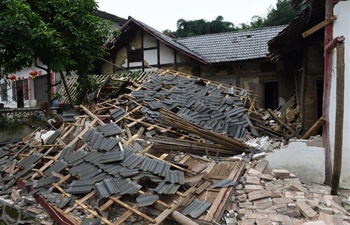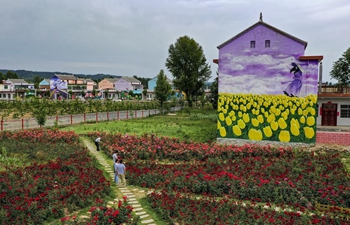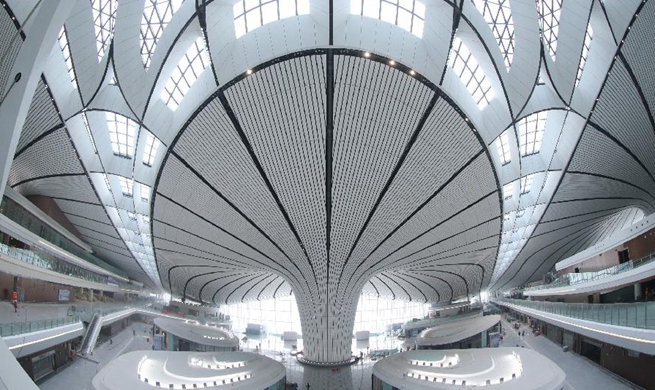HARARE, June 18 (Xinhua) -- Some Zimbabwean businesses have been forced to adjust working hours due to sustained power outages lasting hours a day.
With a rationing from the Power utility Zimbabwe Electricity Transmission and Distribution Company (ZETDC), others in the chicken business are also running losses as eggs fail to hatch because of erratic power supplies.
Eddie Matemayi, a printer in the Tynwald industrial area, said power outages had affected business very much and it had become unsustainable to run the business on back-up generators.
"It is very costly. We can't run a generator everyday because electricity is cheaper than generators which should only come in as backup. We have tried to stagger the working times so that we operate at night when power is supposed to be available, but then there is no guarantee that you will get it," he said.
Butcher Mike Nyakarenga from northwest Harare said he had begun staggering opening hours depending on when electricity was available.
"There's no point in opening when there is no electricity. The meat will only go bad because the fridges will not be working. So it's better I keep the meat in the cold room until power is restored," he said.
A leading fast food company with many outlets throughout the country has also announced that it will stagger operating hours at some of them because of the current power situation.
In a notice to customers, the company said it had introduced "power cut" trading hours during which it would be powered by generators.
However, to many businesses, the power shortage problem is two-pronged. Apart from failing to get electricity from the national grid, the shortage of diesel is also stopping them from operating their generators.
The Progressive Teachers Union of Zimbabwe (PTUZ), which had ventured into a chicken breeding business, is now ruing the decision because of power shortages.
"Because of load shedding by ZESA and non availability of diesel our PTUZ Chicken egg incubation project has suffered. I believe many running such ventures have suffered the same fate. So far we have had to throw away more than 3,000 eggs," said secretary-general Raymond Majongwe on Twitter.
Zimbabwe had enjoyed four years without load shedding, but the drought of 2018/19 pushed the Zambezi River Authority to reduce water allocation to the Zimbabwe Power Company from 19 billion cubic meters to 16 billion cubic meters for 2019, thus reducing power generation. The rationing is meant to ensure that the plant continues to run until the next rainy season.
Power generation at Hwange Thermal Power Station and the smaller thermal power stations of Harare, Bulawayo and Munyati remain fragile because of old age.
ZETDC - a subsidiary of ZESA Holdings - in June announced a biting load shedding schedule after demand continued to outstrip supplies following the curtailment of power generation at its Kariba South Hydro Power Station.
Generation at the country's thermal power stations has also been reduced because of aging equipment, while power imports have been curtailed because the country does not have enough foreign currency to meet the import bill.
According to the schedule, load shedding is normally implemented during the peak periods of 5 a.m. to 10 a.m. and 5 p.m. to 10 p.m..
Both domestic and industrial users are affected in Stage 1 of load shedding, while Stage 2 is implemented if the power deficit is more than earlier anticipated.













